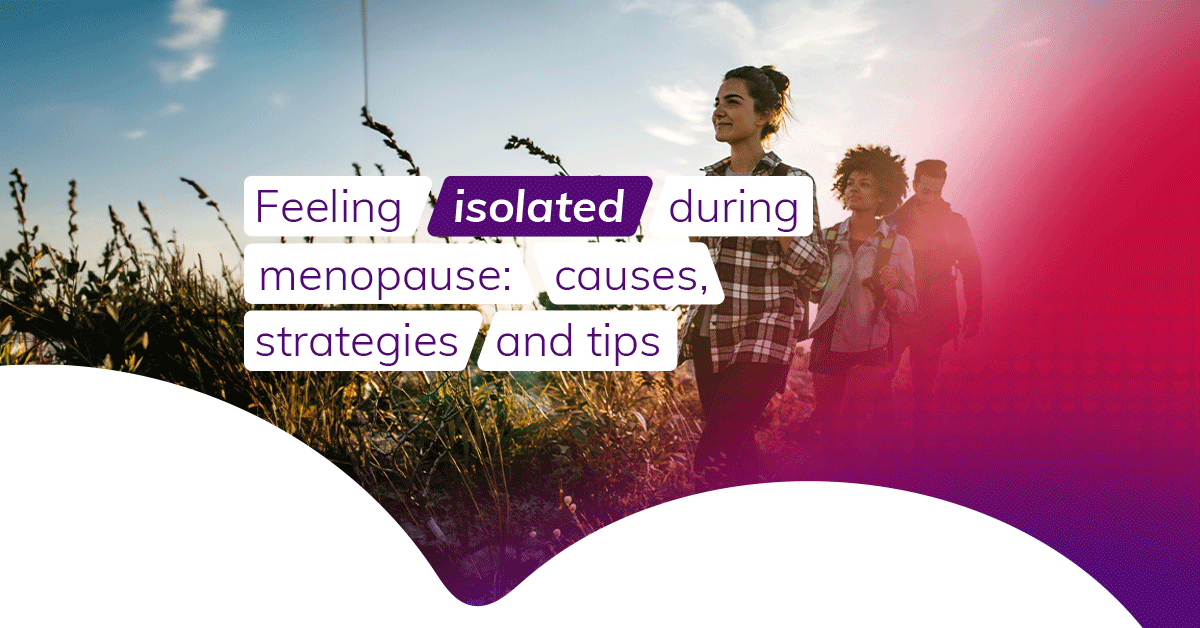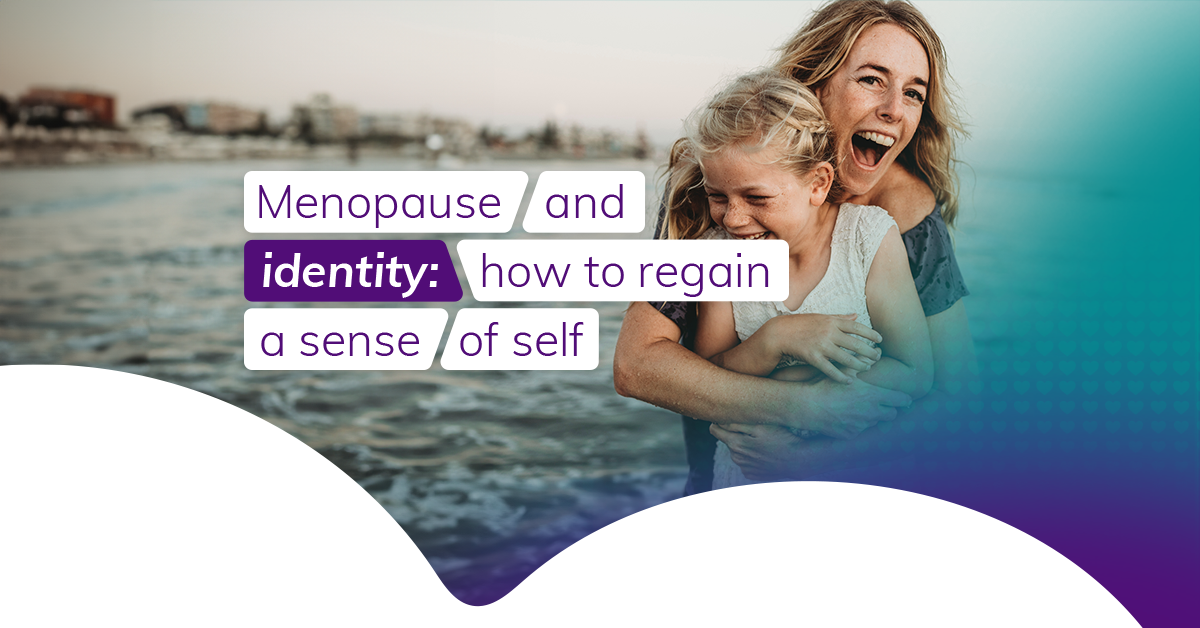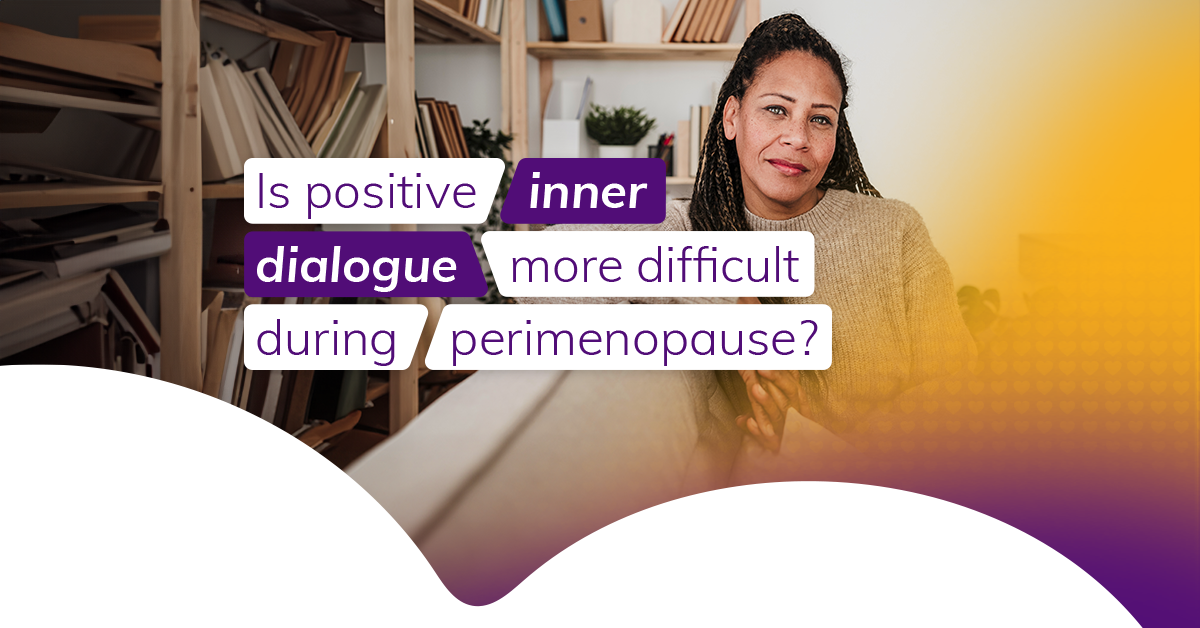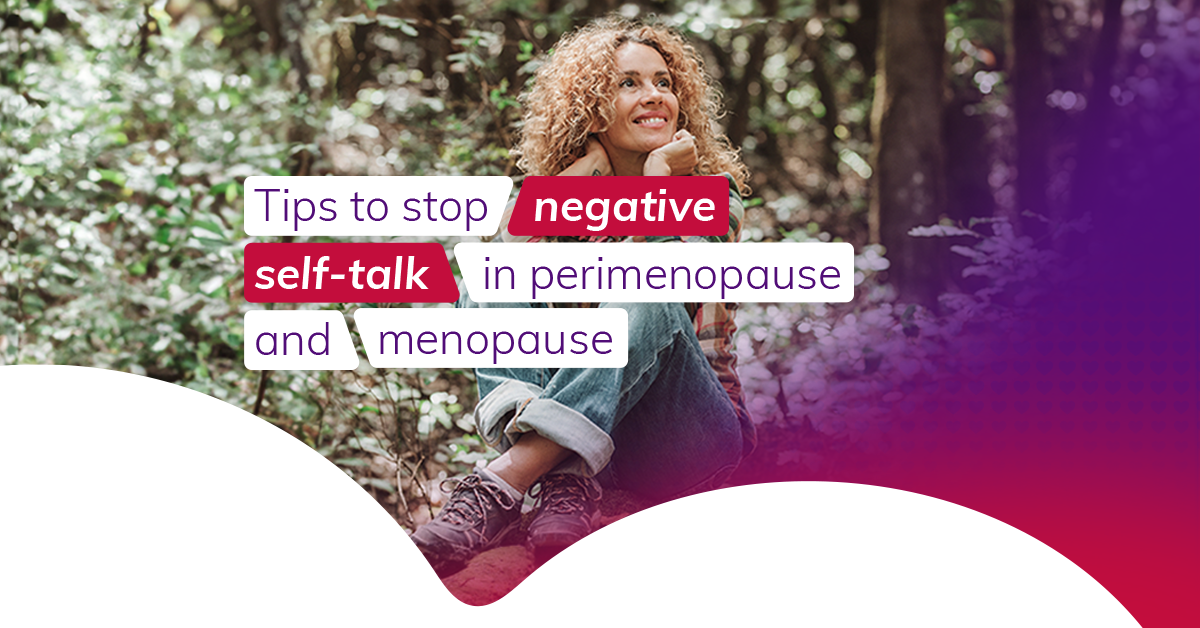

Feeling isolated during menopause: causes, strategies and tips
From hot flushes to empty nest syndrome and stigma, Vhi Clinical Psychologist, Dr Aoife Dáibhis, discusses factors that can contribute to feeling isolated during menopause and the different ways you can overcome each.
What is menopause, and when do women usually experience menopause?
Menopause is a natural transition in life that happens when a woman’s periods stop. Generally, you’re considered to be in menopause when your last period was 12 months ago. The average age for menopause is 51 but is dependent on many factors. It can start as early as their 30s for some women.
Is it typical to feel lonely or isolated during menopause?
Women may be more likely to feel isolated during menopause. Dr Dáibhis explains however, that entering menopause does not guarantee you’ll feel isolated or lonely, and if you do, there are lots of interventions and ways to combat it.
What can cause feelings of isolation for women during menopause?
Feeling self-conscious about physical symptoms of menopause like hot flushes and sweating can lead women to withdraw from certain settings, such as restaurants and bars, to avoid the risk of triggering them. Dealing with psychological symptoms like low mood or irritability can also result in women pulling back from socialising and doing things they normally enjoy. This can snowball somewhat because the more you isolate yourself, the harder it can become to put yourself out there. While being around others can feel like the last thing we want to do, Dr Dáibhis explains that social connection is a good mood lifter when we don’t feel our best.
Menopause also tends to coincide with a lot of other transitions in life; children becoming teenagers or heading off to college means the tasks and things that used to take up a lot of your time are no longer there. This can leave a gap that makes some women feel lonely. This stage of life might also mean you’re caring for elderly parents, experiencing career changes, relationship changes, ageing, and dealing with body changes or health issues. Any time our roles or identity shift, it’s understandable that it may feel lonely or isolating for a period.
Depending on your life stage and circumstances, you might have older children who are moving out of the house. Empty nest syndrome refers to the feelings of grief, sadness and loneliness that some parents experience when their child or children move out of home. This can be a really difficult time for lots of parents, and Dr Dáibhis suggests one coping mechanism is to try and reframe your perspective. This might be the first time that you can do more of the things you love or to try something totally new. If your kids are now independent, you also might have more financial freedom to do these things. You can spend extra time with friends or nurturing your relationship with your partner or yourself. It’s most definitely a chance to get out there and do more of the things you love!
Does stigma about menopause play a part in feelings of isolation?
It definitely does have a role to play. Fortunately, the stigma around menopause seems to be changing a lot, although it’s “uneven progress”. For some, menopause might be discussed in lots of their social groups, at work and with family, so there is less stigma, embarrassment or keeping things hidden. Other women might have a different experience; less open conversation about menopause with their peers or in the workplace, their family doesn’t understand what they’re going through quite as much, or maybe they didn’t have a great encounter with their healthcare provider when it came to treatment or care. In these situations, speaking to other women can be a big help. Reach out to friends, sisters, colleagues or even join online communities and support groups. Dr Dáibhis highlights that menopause absolutely does not mean the best days are behind you, but rather, a new chapter is starting, and it’s one with lots of opportunities.
Can irritability cause some women to pull away from others and purposefully isolate themselves? Are there any tricks to ward off irritability quickly?
Understandably, if you’re often feeling irritable, you aren’t going to want to be the life and soul of the party. Breathing exercises are an effective way to calm yourself when you feel your mood shift toward anger. Dr Dáibhis explains that if you can control your breathing, your body will naturally begin to relax, making it difficult to feel angry or anxious. It takes around three weeks of daily practise to be able to use breathing exercises as an “in the moment skill”. Exercises such as ‘diaphragmatic breathing’ and ‘slow breathing’ work well and can be done anywhere. The 4-7-8 breathing technique involves inhaling for 4 seconds, holding for 7 seconds, and exhaling for 8 seconds. Take your time building up to this and practise in increments that feel comfortable.
The ‘STOPP’ (Stop, Take a Breath, Observe, Pull back with some perspective, and Proceed Mindfully) technique is also useful and requires you to take a pause before you speak or respond to messages or emails when you’re feeling irritable. First, stop, take a breath and step back to observe the situation. Next, you simply interrupt your initial reactive or angry response and buy yourself some time to gain some perspective on the situation. Maybe go to the bathroom, get a drink of water, or make a quick call. After this, you’re likely to feel more confident that you can stand over your response and proceed in a way that feels right for you.
Limiting your exposure in situations you know could make you irritable is another option. Rather than spending four hours on a meet-up with friends, you can decide to make two hours your cut-off point. Smaller bouts of time are easier to handle―this will require you to be more in-tune with what you can handle and what feels like too much. Knowing your triggers and limits will make manoeuvring your moods easier.
How can women overcome a reluctance to leave the house or socialise that started with menopause?
Firstly, you need to figure out why you’re pulling back. Is it because of the physical symptoms of menopause? Are you treating these symptoms if that’s the reason? Is it because you haven’t been feeling comfortable in your friend group? If yes, why is this? Do you need to address an issue in the group or simply spend more time with other peers? Maybe you’re out of the habit of giving yourself time to see friends, and you need to prioritise your mental health by seeing them more often. If you’ve drifted from your friends, this could be a great time to start a new hobby that will allow you to meet people.
Noticing that you’re feeling isolated and finding ways to address the root causes is a useful way to overcome your feelings of isolation. Dr Dáibhis points out that if what you’re feeling is a more profound anxiety, and you’re really struggling to get out the door, then you need to speak to a healthcare professional. You don’t need to put up with those feelings and fears; there are solutions that will work for you.
What treatments or tools can women try when dealing with feelings of isolation?
Treating the symptoms of menopause that are playing a role in your isolation or loneliness is the first port of call. Speak to your healthcare provider about treating your symptoms, as these will naturally make you feel less like yourself, less comfortable, and perhaps less inclined to be around others. They also can make you feel like you’re suffering alone and that those close to you don’t understand. After speaking to your GP, you need to look at the lifestyle factors at play. If you’re dealing with hot flushes, for instance, consider:
- What clothing can you comfortably wear when out of the house?
- What venues can you happily be in? Can you find seats closer to the door?
- What seems to trigger the hot flushes? Should you avoid tea and coffee? How long do the hot flushes last?
- Can you change where you meet your friends? Rather than sitting in a busy café, can you get takeaway coffees and go for a walk?
Putting a bit of a plan in place like this can make it easier to do the things you enjoy regardless of hot flushes, because you feel more prepared.
We’ve seen that there are a host of things during menopause that can make women feel lonely or isolated from the people around them. But, there are even more tactics and solutions to target whatever is making you feel that way. Hopefully, this blog has provided some ideas to get you started and has given you the reassurance that feelings of isolation are completely normal and can be overcome.
This content is for information purposes only and is not intended or implied to be a substitute for professional medical advice, diagnosis, or treatment. Always seek advice from your GP or an appropriate medical professional if you have concerns about your health, or before commencing a new healthcare regime. If you believe that you are experiencing a medical emergency call 999 / 112 or seek emergency assistance immediately.
Meet our Vhi Verified Expert




